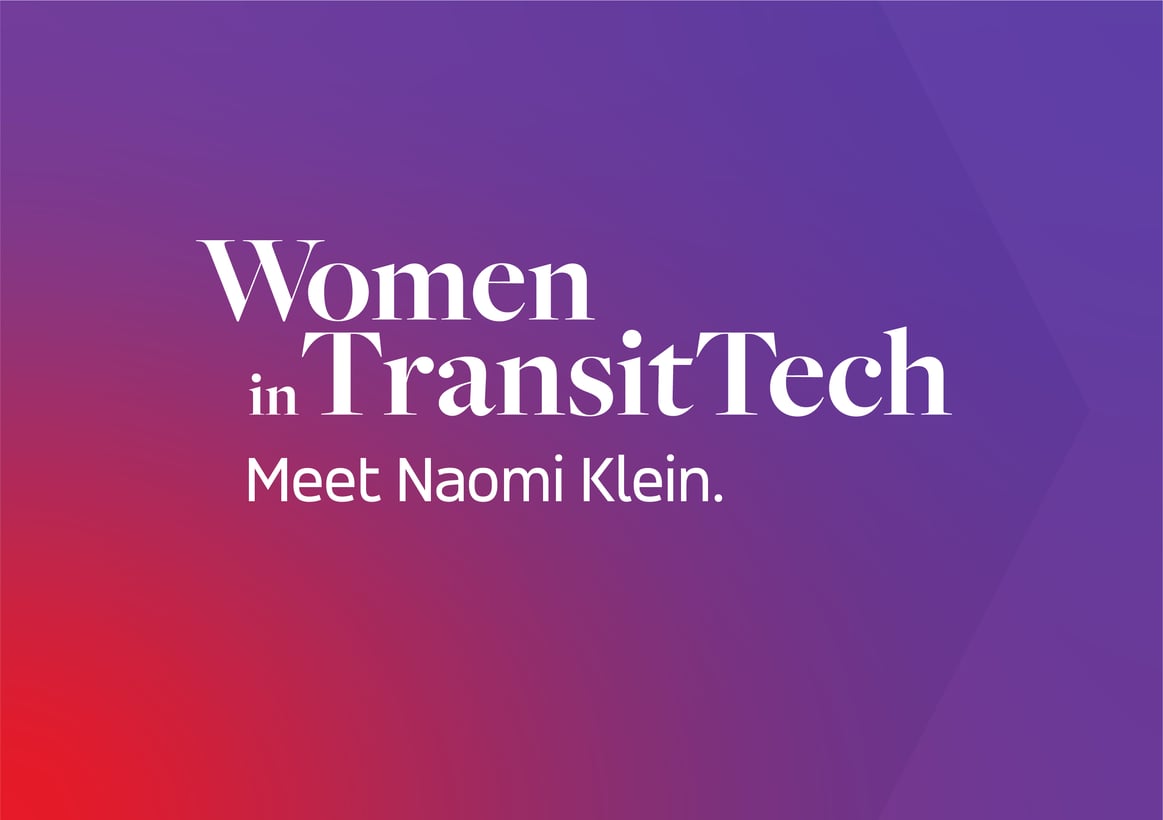Challenging the status quo takes diligence, determination, and vision — especially when it comes to an industry that hasn’t seen a seismic shift since the automobile was invented. And, as it turns out, it’s often women who choose to challenge these norms. In honor of International Women’s Day and throughout the month of March, Via is proud to profile a number of changemakers driving real innovation in their communities and inspiring their peers. Enjoy the story below, and then check out the rest of the series here.
Naomi Klein has been the Director of Transportation Planning for Westchester County, New York, since 2010, leading initiatives related to bus systems and regional transportation planning. She has held positions at MTA Metro-North Railroad, the New York City Department of Transportation, and the New York City Department of Housing, Preservation and Development. Naomi is a graduate of Oberlin College and holds a Master’s Degree from the Cornell University School of Architecture, Art and Planning. She is a member of the Women’s Transportation Seminar (WTS) and has been a mentor in their professional development program. She has also taught classes in transportation at the Scarsdale Adult School. Naomi has traveled extensively, visiting transportation systems in the United States and abroad.
What did 10-year-old Naomi want to be when she grew up? How did you evolve from there to your current position in transportation? I was always interested in social issues. Though my childhood was spent in a rural area of Connecticut, I had opportunities to travel to New York City and found the hustle and bustle and diversity of urban fabric very exciting. As a history major in college, my interest has been in answering the question of “how did we get to where we are,” as a way to provide background and understanding to issues and solve problems.
What do you think are the most important qualities in a leader? Are there any leaders, in particular, you look up to? Important qualities in a leader are having a vision and being able to inspire others to effectuate positive change. A leader should demonstrate humility, honesty, and integrity, and not forget how they got their start on a particular path in life or who helped them along the way. There are a number of people I have met and worked with who possess these qualities. They include some national leaders but also teachers, professional colleagues, and friends. There are also many “quiet” leaders who set an example, work hard, and serve others.
What are the big transit challenges in your community that your team is looking to solve with innovation? Prior to the pandemic, transit agencies were facing a decline in ridership due to many factors — competition with transportation network companies, lower gas prices, widely-available credit to own a car, growth in e-commerce, and decline in brick-and-mortar retail. The challenge is to adapt to the changing economy through on-demand and nontraditional transportation services that harness new technologies to complement public transit. The concept of Mobility-as-a-Service (MaaS) will likely be a key component of any reimagined transportation system. In addition, transit agencies will need adequate resources to improve and operate service and maintain assets in good condition.
In your view, what’s the biggest challenge the transportation industry as a whole will have to tackle in the next 2-5 years? By far the greatest challenge is to deal with the impact of COVID-19 on transportation systems. Losses in transit ridership have only been exacerbated by the pandemic. Adapting to new paradigms of working, such as telecommuting, while offering core transit services to those in job sectors that do not telecommute, will be essential to maintaining an equitable transportation system.
Transit providers also need to convey the message that public transportation is the safest and most sustainable way to travel. This will be critical in order to attract riders who may have been hesitant to ride during the pandemic.
Tell us about a defining moment in your professional life that has helped guide you on your path. I have had a number of defining moments throughout my career. Certainly, completing projects I manage and being pleased with the results can be exceptionally gratifying. I also think that having reached a point where I trust my intuition and see that my decision-making skills are well respected by others has given me resolve in many areas.
And finally, what drives you? (Pun intended!) I have always been service-oriented and worked from a young age at various jobs — including my family’s egg farm. My moral compass was influenced by my parents who set an example through hard work and serving others. I am motivated to do the best I can to improve public transportation in a way that is sustainable and equitable and supports a better future.

.png?width=71&height=47&name=Sioux%20Falls%20Webinar%20(6).png)


